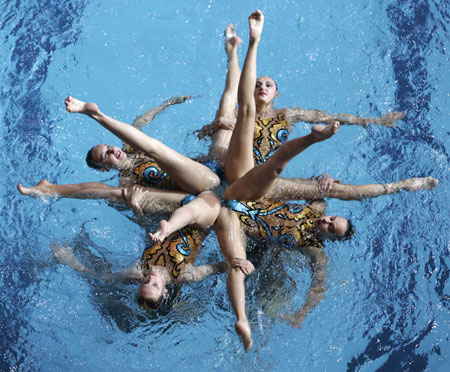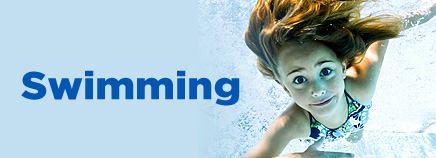A Disputed Olympic Medal – By Aug. 5, as Frechette began the first portion of the finals in her event–the execution of four figures drawn from synchro-swimming’s repertoire of ballet-like movements–it was apparent that she had succeeded. On the first of the four, only American Babb-Sprague scored higher. Frechette would later describe the second, called an albatross spin, as “the best figure of my life.” At least four of the five judges, sitting in pulpit-like stands around the pool, plainly agreed: they punched scores of 9.2 or better into the small electronic keypads connected to the facility’s scoring computer.
EXCITED
But at the fifth judging position, there was consternation. Brazilian judge Ana Maria da Silveira had also rated Frechette’s figure highly: later, the swimmer’s coach, Julie Sauv*, said that da Silveira had told her that she intended to award a 9.7–but instead struck keys registering an 8.7. Almost instantly, it appears, she tried to activate a device intended to allow her to recall a mistyped score. Swiss judge Marlis Haeberlis, whose position was next to da Silveira’s, recounted: “She tried to correct it, and she couldn’t make that recall thing work. Finally, because she was all excited, she pushed several buttons.” sbobet338

According to Haeberlis, the referee, American Judith McGowan, was too far away for da Silveira to call, and assistant referee Nakako Saito of Japan spoke such poor English that she failed to understand da Silveira’s predicament. “By the time somebody got the referee,” concluded Haeberlis, “the marks were already read.” Competition rules state that once marks are disclosed publicly, they cannot be changed. McGowan ordered the lower mark to stand, and Frechette ended the day in second place behind Babb-Sprague–the wife of Toronto Blue Jays backup catcher Ed Sprague. taruhan bola
THE NEXT AFTERNOON
Frechette returned to the pool determined to give her best. The uncorrected mark of the previous day, she said later, had “helped me a lot–I was so mad, so full of energy.” What she did was score a 99.160, a full .120 higher than Babb-Sprague–but not quite enough to overcome the deficit that resulted from the mistaken mark. Effectively, her second-place fate had been sealed earlier in the day by a panel of 13 members of the so-called “bureau” of the International Amateur Swimming Federation (called FINA, the acronym for its name in French), that considered Canada’s appeal. americandreamdrivein.com

Frechette’s case was contained in a written brief, while referee McGowan also submitted one. Astonishingly, however, the panel made no attempt to question da Silveira or anyone else directly involved in the previous day’s mix-up. After more than an hour, by a vote of 11 to two (the two Canadian members voted against the majority), the jury upheld McGowan’s original ruling. “We do not entertain issues of fact,” explained FINA secretary Ross Wales, an American lawyer. Challenged to justify the panel’s decision to read only written reports and not hear directly from any witnesses, Wales added blandly: “Hearsay is accepted.”
